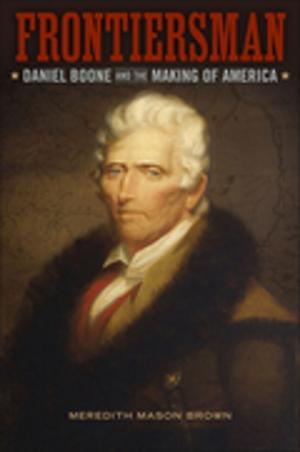| Author: | Taylor Hagood | ISBN: | 9780807157282 |
| Publisher: | LSU Press | Publication: | January 12, 2015 |
| Imprint: | LSU Press | Language: | English |
| Author: | Taylor Hagood |
| ISBN: | 9780807157282 |
| Publisher: | LSU Press |
| Publication: | January 12, 2015 |
| Imprint: | LSU Press |
| Language: | English |
From the emerging field of disability studies, Taylor Hagood offers the first book-length consideration of impairment in William Faulkner's life and writing. Blending biography, textual analysis, and theory in an experimental style, Hagood explores in both form and content the constructs of normality and their power.
Hagood brings to light little-known and rarely discussed ways in which Faulkner's personal and familial background were marked by disability and discusses the ways the writer incorporates disability into his fiction. He reevaluates Faulkner's so-called "idiots"-Benjy Compson, Ike Snopes, and others-as characters whose narratives both satisfy and shock the reader. Hagood also examines the roles that impairment and abnormality play in texts such as the stories "The Leg" and "The Kingdom of God" and the novels A Fable and Flags in the Dust.
Highly original readings result, including new understandings of: the centrality of the visually impaired Pap in Sanctuary; the disability-centric social order based on interdependence in Pylon; and the disabled speech of Linda Snopes Kohl in The Mansion. Hagood argues that Faulkner's poetics are deeply invested in disability, both in promoting a disability-inclusive fictional world and in exposing and subverting the devaluation of disabled bodies and minds.
Hagood draws on firsthand knowledge of his native of Ripley, Mississippi, the ancestral home of the Faulkners, to offer readers otherwise inaccessible contextual information. Moreover, by framing each section of his study within a different kind of discourse-newspaper style, biography, email, and advertisement-he uses the very structure of the book to underscore the questions of normalcy prevalent in disability studies. This rich and unconventional study offers insight into a Faulkner haunted by experiences of disablement and compelled to narrate them in his own writing.
From the emerging field of disability studies, Taylor Hagood offers the first book-length consideration of impairment in William Faulkner's life and writing. Blending biography, textual analysis, and theory in an experimental style, Hagood explores in both form and content the constructs of normality and their power.
Hagood brings to light little-known and rarely discussed ways in which Faulkner's personal and familial background were marked by disability and discusses the ways the writer incorporates disability into his fiction. He reevaluates Faulkner's so-called "idiots"-Benjy Compson, Ike Snopes, and others-as characters whose narratives both satisfy and shock the reader. Hagood also examines the roles that impairment and abnormality play in texts such as the stories "The Leg" and "The Kingdom of God" and the novels A Fable and Flags in the Dust.
Highly original readings result, including new understandings of: the centrality of the visually impaired Pap in Sanctuary; the disability-centric social order based on interdependence in Pylon; and the disabled speech of Linda Snopes Kohl in The Mansion. Hagood argues that Faulkner's poetics are deeply invested in disability, both in promoting a disability-inclusive fictional world and in exposing and subverting the devaluation of disabled bodies and minds.
Hagood draws on firsthand knowledge of his native of Ripley, Mississippi, the ancestral home of the Faulkners, to offer readers otherwise inaccessible contextual information. Moreover, by framing each section of his study within a different kind of discourse-newspaper style, biography, email, and advertisement-he uses the very structure of the book to underscore the questions of normalcy prevalent in disability studies. This rich and unconventional study offers insight into a Faulkner haunted by experiences of disablement and compelled to narrate them in his own writing.















